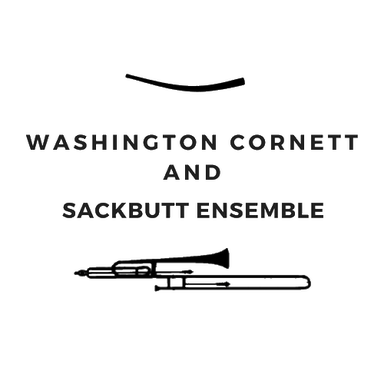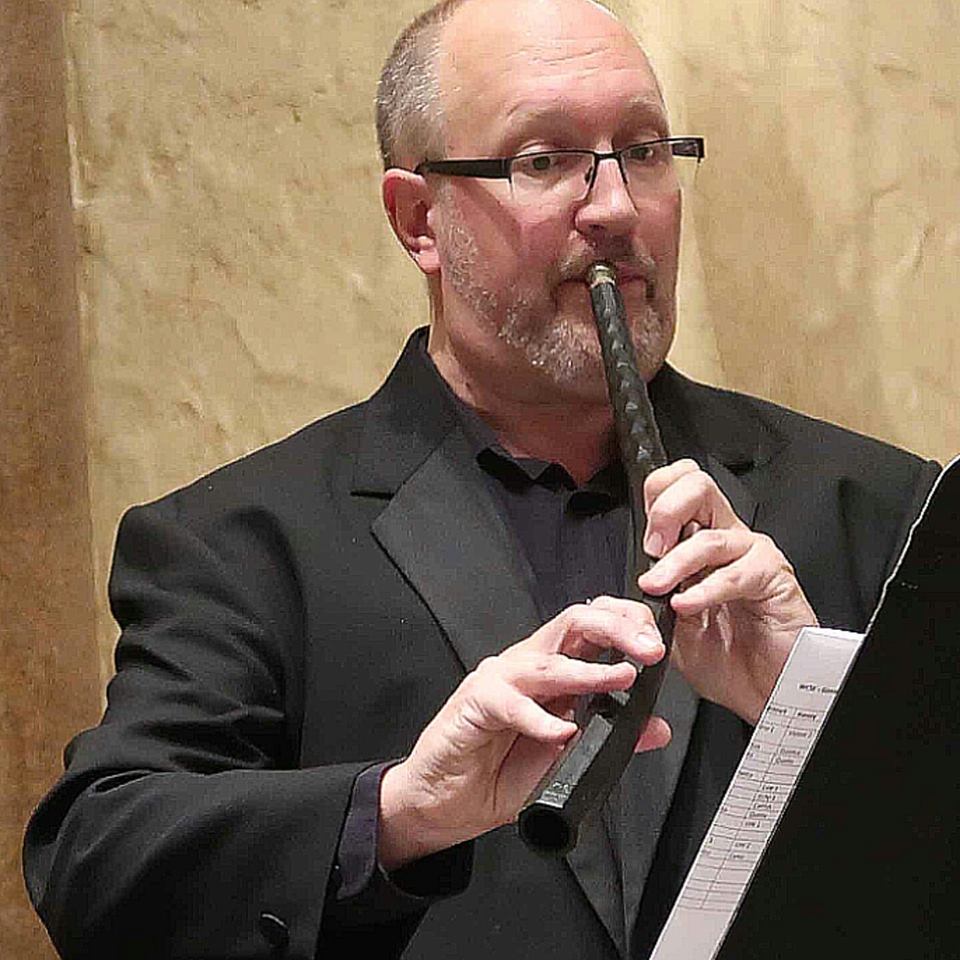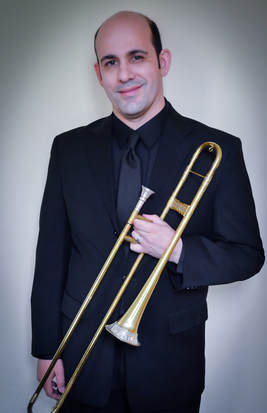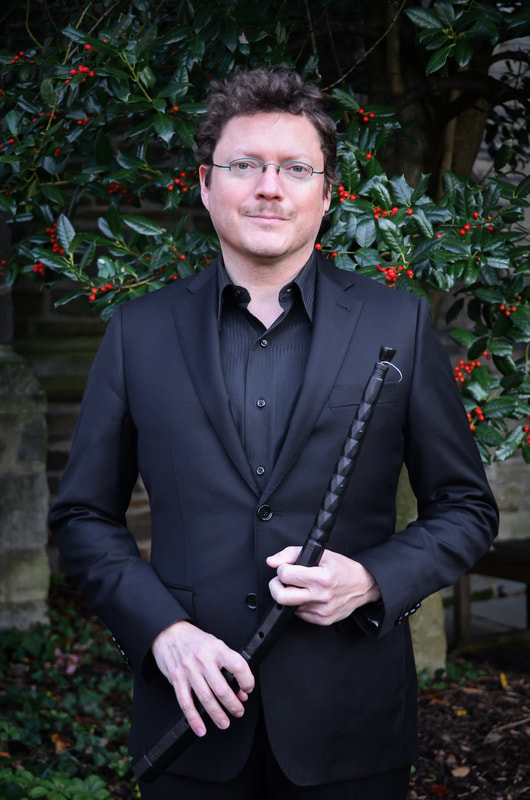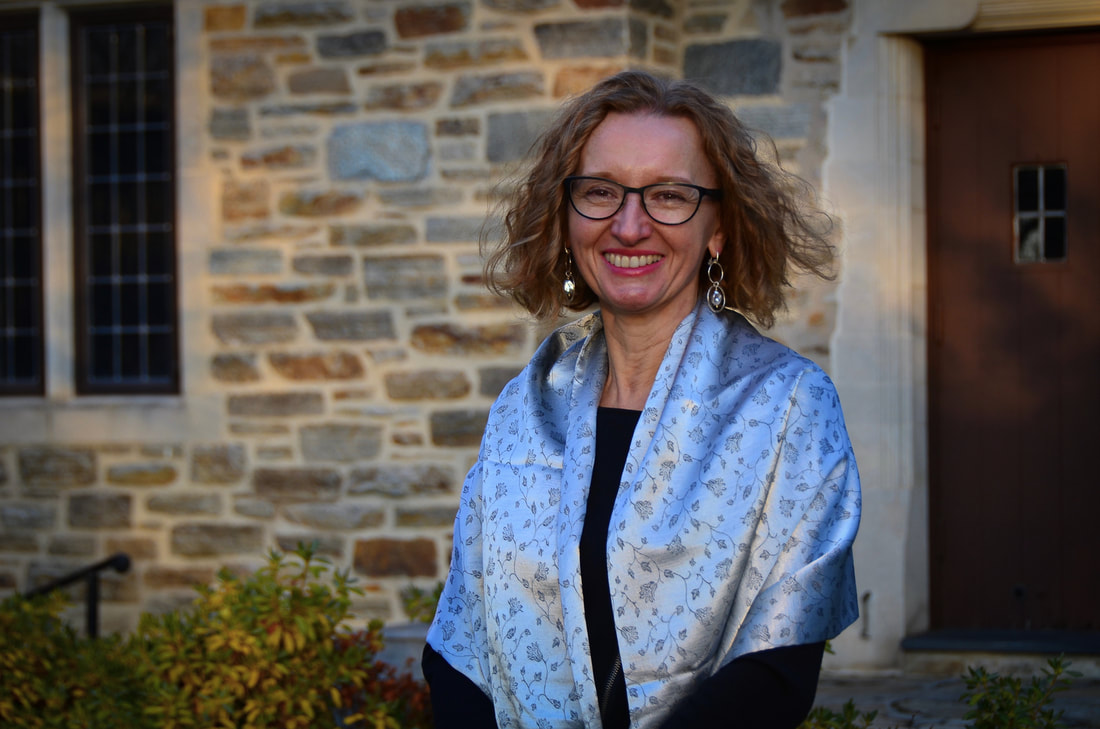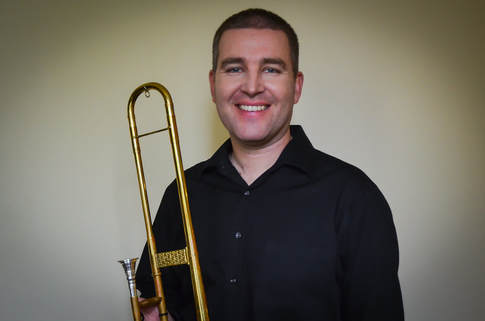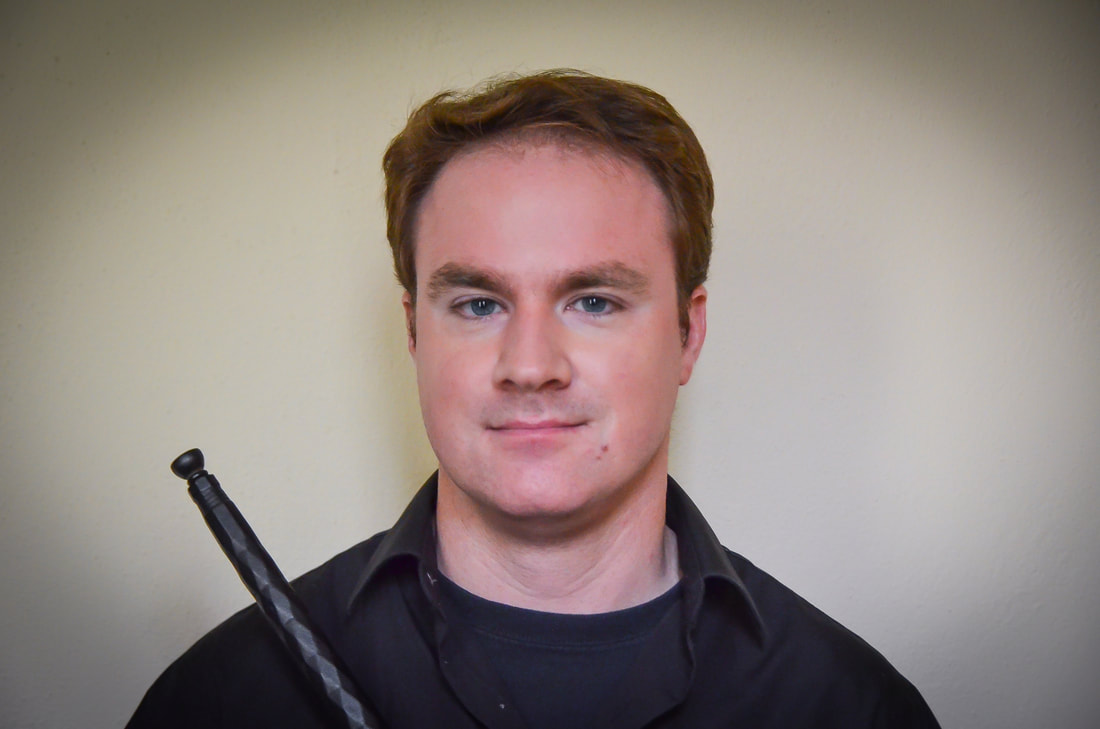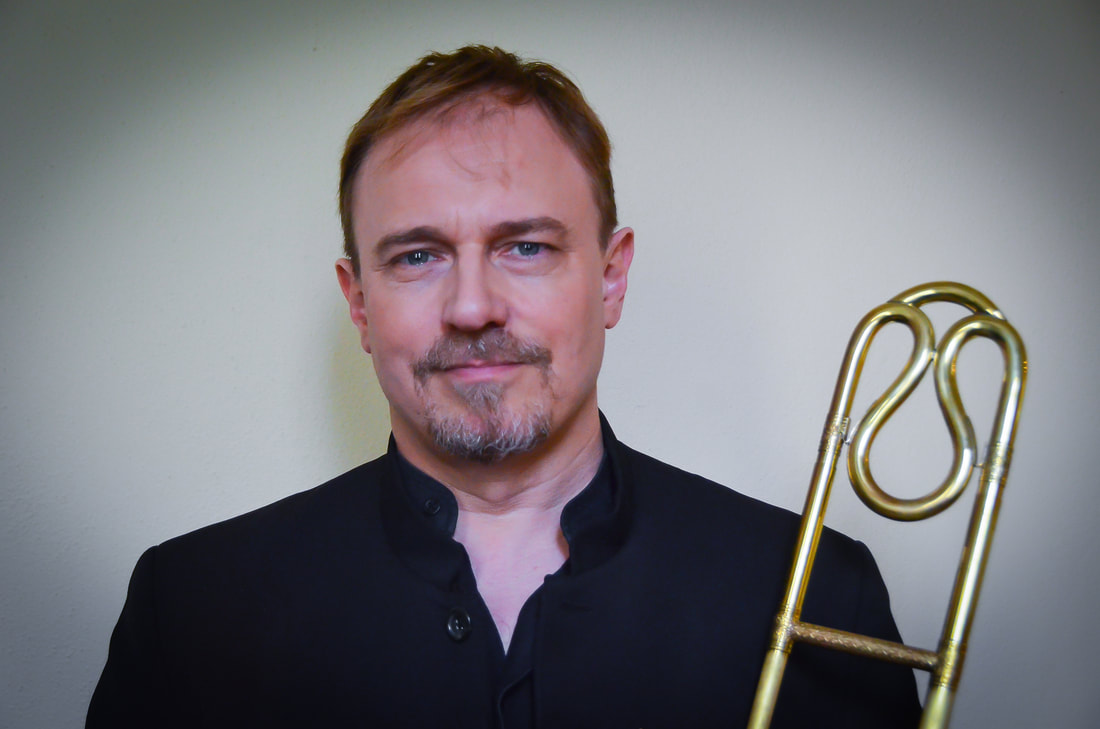WCSE Musicians
Michael Holmes has always been active across a wide spectrum of musical pursuits. After spending much of his early career performing as a hornist in professional orchestras (including the Richmond Symphony, Virginia Symphony, and West Virginia Symphony), his interests expanded toward conducting and early music. Since then, he has performed extensively as a conductor or featured performer with numerous established European and American symphony orchestras, opera companies, and early music ensembles.
His artistic focus in North America deals primarily with historic music pursuits. From 2000 to 2010, he served as the music director of the Orchestra of the 17th Century and has been a co-founder and artistic director of the Washington Cornett and Sackbutt Ensemble since 2000. WCSE remains one of the more in-demand ensembles for historic brass performance in North America, and is an active touring ensemble. Michael Holmes has also performed on numerous historic instruments and as a vocalist with such ensembles as Piffaro, the Boston Shawm and Sackbut Ensemble, Artek, Tempesta di Mare, Teatro Nuovo (Opera), Stylus Luxurians, the Washington Bach Consort, the Bach Sinfonia, and Ensemble Croesus. The Washington Post has hailed Michael Holmes as "a master of the recorder, crumhorn, and sackbut." (Washington Early Music Festival, 2004)
Holmes has had a special interest in Nordic music, and has been a passionate advocate of the Finnish composer Jean Sibelius. In 2001-02, he was awarded a Fulbright fellowship to live in Helsinki, Finland in order to research Sibelius's life and works. By permission of the Sibelius family heirs, he was able to view the composer’s letters, personal effects and unpublished manuscripts, and was also granted permission to perform those works outside of Finland, including Sibelius’s nine rare brass septets played on instruments from the late 19th century.
Michael Holmes has degrees in Music Theory/Composition (BM) from James Madison University, and in Orchestral Conducting (MM) from Virginia Commonwealth Universtity. He also did an independent study in music in 1990 at the British Institute in Florence, Italy and completed PhD coursework in Musicology at the University of Maryland, College Park. Michael Holmes has been on the faculties of University of Maryland, Towson University, and American University, and has been the director of music at the Unitarian Universalist Church of Silver Spring since 2004.
His artistic focus in North America deals primarily with historic music pursuits. From 2000 to 2010, he served as the music director of the Orchestra of the 17th Century and has been a co-founder and artistic director of the Washington Cornett and Sackbutt Ensemble since 2000. WCSE remains one of the more in-demand ensembles for historic brass performance in North America, and is an active touring ensemble. Michael Holmes has also performed on numerous historic instruments and as a vocalist with such ensembles as Piffaro, the Boston Shawm and Sackbut Ensemble, Artek, Tempesta di Mare, Teatro Nuovo (Opera), Stylus Luxurians, the Washington Bach Consort, the Bach Sinfonia, and Ensemble Croesus. The Washington Post has hailed Michael Holmes as "a master of the recorder, crumhorn, and sackbut." (Washington Early Music Festival, 2004)
Holmes has had a special interest in Nordic music, and has been a passionate advocate of the Finnish composer Jean Sibelius. In 2001-02, he was awarded a Fulbright fellowship to live in Helsinki, Finland in order to research Sibelius's life and works. By permission of the Sibelius family heirs, he was able to view the composer’s letters, personal effects and unpublished manuscripts, and was also granted permission to perform those works outside of Finland, including Sibelius’s nine rare brass septets played on instruments from the late 19th century.
Michael Holmes has degrees in Music Theory/Composition (BM) from James Madison University, and in Orchestral Conducting (MM) from Virginia Commonwealth Universtity. He also did an independent study in music in 1990 at the British Institute in Florence, Italy and completed PhD coursework in Musicology at the University of Maryland, College Park. Michael Holmes has been on the faculties of University of Maryland, Towson University, and American University, and has been the director of music at the Unitarian Universalist Church of Silver Spring since 2004.
Barry Bocaner, a versatile low brass instrumentalist, studied trombone with Dr. Milton Stevens. He specializes in historic low brasses including sackbut, tenor and alto baroque and classical trombone, ophicleide, serpent and saxhorns as well as the more unusual modern low brasses including bass trumpet, euphonium, and British-style baritone horn. He performs regularly with the Washington Cornett and Sackbutt Ensemble, the Coates Brass Band, and Newberry's Victorian Cornet Band, with whom he is the featured baritone soloist. Barry is the managing director and baritone player for The Brass of the Potomac, a professional 30-piece British-style brass band based in Washington, DC and performs as a trombonist with many local orchestras. Barry has also appeared with period instrument orchestras Grand Harmonie, The Bach Sinfonia, and the Washington Bach Consort.
Alexander Bonus (cornetto) maintains a varied career as multi-instrumentalist, composer, conductor, educator, and researcher. As an early-brass specialist, Alexander has performed with ensembles including Tafelmusik; Chicago Opera Theater; Folger Consort; Tragicomedia; Indianapolis Baroque Orchestra; San Francisco Bach Chorale; Musica Angelica; and Apollo’s Fire. Alexander’s natural-trumpet playing is heard on the Boston Early Music Festival’s Grammy-nominated recording of Psyché by J. B. Lully. An avid keyboard improviser, Dr. Bonus has performed harpsichord and organ continuo with the American Symphony Orchestra, the Bard Festival Chorale, and The Orchestra Now.
In his role as early-music director, Alexander Bonus founded the Bard Baroque Ensemble and led the Duke University Collegium Musicum from the keyboard. Dr. Bonus holds two degrees from the Eastman School of Music and a PhD in Musicology from Case Western Reserve University. His scholarship on historical performance practices appears in sources including Oxford Handbooks Online, the new Cambridge Encyclopedia of Historical Performance in Music, and the revised Grove Dictionary of Musical Instruments. He currently serves as a professor in the Music Department at Vassar College.
In his role as early-music director, Alexander Bonus founded the Bard Baroque Ensemble and led the Duke University Collegium Musicum from the keyboard. Dr. Bonus holds two degrees from the Eastman School of Music and a PhD in Musicology from Case Western Reserve University. His scholarship on historical performance practices appears in sources including Oxford Handbooks Online, the new Cambridge Encyclopedia of Historical Performance in Music, and the revised Grove Dictionary of Musical Instruments. He currently serves as a professor in the Music Department at Vassar College.
Bozena Jedrzejczak Brown holds a Master's Degree in harpsichord performance (2000) from the Peabody Institute, in the studio of Webb Wiggins. She also studied harpsichord at Northern Illinois University, earning an individualized Master's degree (1998),and received a B.M. in music theory (1991) from the Frederic Chopin Music University in Warsaw, Poland. She teaches harpsichord and rudiments of figured bass at the Baltimore School for the Arts, and is a faculty member of the Music and Arts Department at Garrison Forest School in Owings Mills, MD. Bozena freelances as a continuo player on harpsichord and chamber organ, and has performed with many groups in the Mid-Atlantic region, including Washington Cornett and Sackbut Ensemble, Orchestra of the 17th Century, Richmond Symphony Orchestra, Mid-Atlantic Symphony, Bach Concert Series Orchestra, Washington Camerata and L’Arabesque Baroque, among others.
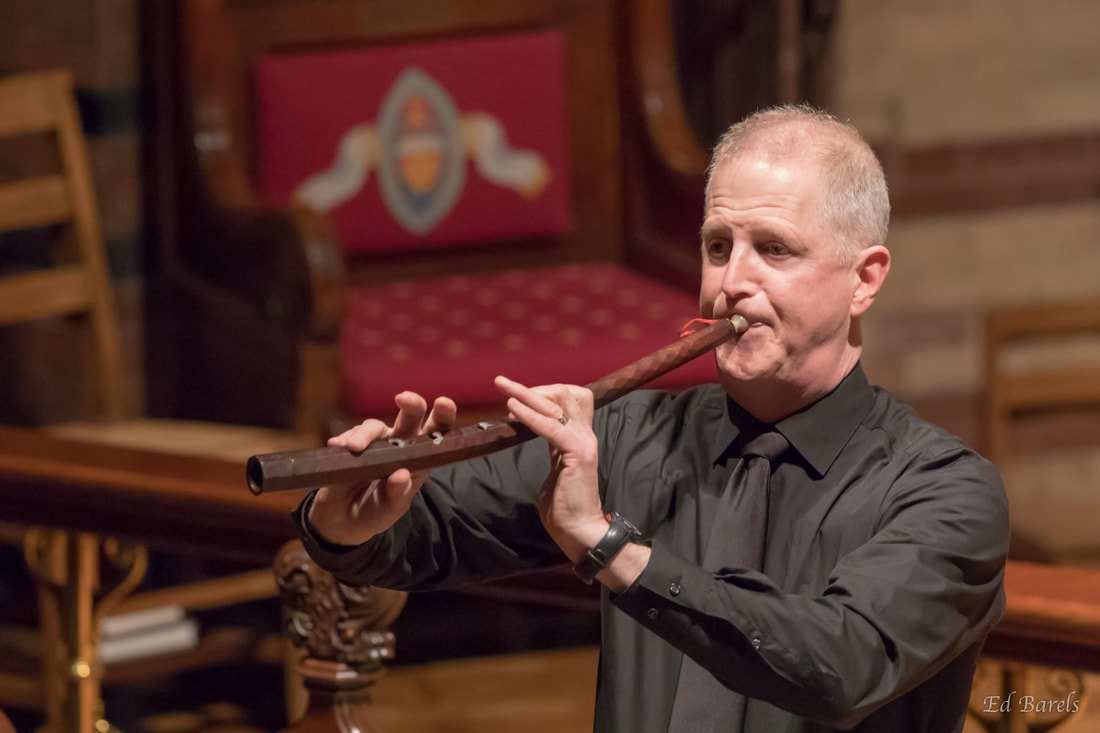
Stanley Curtis has developed a multi-faceted career as a modern trumpet teacher and early music specialist on baroque trumpet and cornetto.
After studying at the University of Alabama, the Cleveland Institute of Music and in the Netherlands on a Fulbright Scholarship, he received his Doctor of Music degree from Indiana University in 2005. He has taught at George Mason University and served as Historic Trumpet Division chair of the National Trumpet Competition.
Having retired from a 20-year career in the
U.S. Navy Band in Washington, D.C., Colorado State University appointed Curtis to the position of Assistant Professor of Trumpet starting in the fall of 2018. Curtis is a long-time blogger on the Trumpet Journey website.
After studying at the University of Alabama, the Cleveland Institute of Music and in the Netherlands on a Fulbright Scholarship, he received his Doctor of Music degree from Indiana University in 2005. He has taught at George Mason University and served as Historic Trumpet Division chair of the National Trumpet Competition.
Having retired from a 20-year career in the
U.S. Navy Band in Washington, D.C., Colorado State University appointed Curtis to the position of Assistant Professor of Trumpet starting in the fall of 2018. Curtis is a long-time blogger on the Trumpet Journey website.
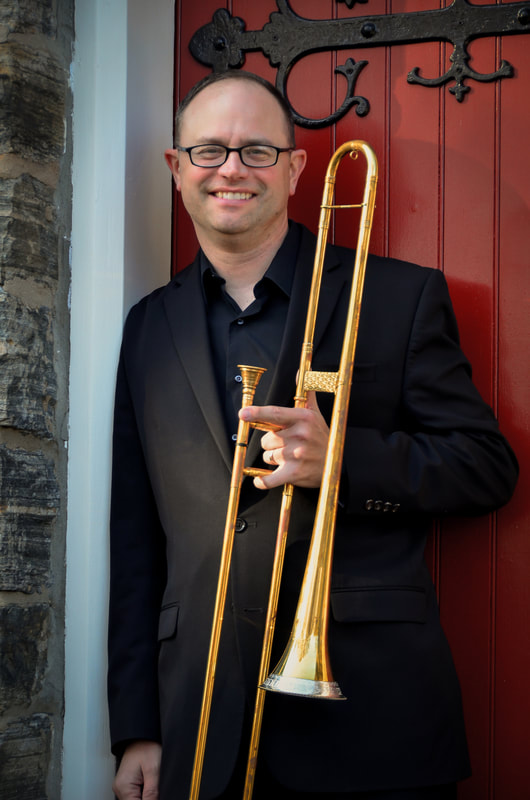 Photography: Jolie Snavely
Photography: Jolie Snavely
David J. Miller, originally from Chicago, studied with Thomas Ashworth while earning a Bachelor’s Degree in Trombone Performance at the University of Minnesota, and with Nitzan Haroz while he completed his Master’s Degree in Trombone Performance at Temple University. He was a member of the Charleston Symphony (SC), and solo trombonist with the Orquesta Sinaloa de las Artes (Sinaloa, Mexico), of which he was a founding member. He was also principal trombonist of the Orquesta Sinfónica de Minería (Mexico City, Mexico). He has performed solo recitals in Poland, given master classes in Mexico City, and was the trombone instructor at the Instituto Superior de Música del Estado de Veracruz in Mexico, as well as Claflin University in Orangeburg, SC. He has performed with the Baltimore and Cincinnati Symphony Orchestras, the Kennedy Center Opera House Orchestra, the Kirov Ballet, the Pacific Music Festival Orchestra (Sapporo, Japan), as well as with the Annapolis and Delaware Symphonies. He has performed with such international artists as Jose Carreras, Arturo Sandoval, and Paquito D’Rivera. He is currently a member of the US Navy Band in Washington, DC and Co-Principal Trombone of the Fairfax Symphony Orchestra. His transcriptions for concert band have been recorded and performed on numerous tours of the US Navy Concert Band. He also arranges for The Barclay Brass, one of the premiere brass ensembles of the National Capitol Region. As an engraver and copyist, he worked for Kalmus Music, and now publishes his own arrangements at Sterling Music Editions. In 2010, the Philadelphia Orchestra performed the premiere of his critical edition of Mikhail Glinka’s Ruslan and Ludmila Overture under the direction of Charles Dutoit. He has been a member of WCSE since 2007 and has also performed on historical trombones with the Washington Bach Consort.
Born in Dayton, Ohio, Aaron Moats attended the Interlochen Arts Academy, Eastman School of Music and the University of Maryland. Aaron was awarded the coveted Performer’s Certificate from the Eastman School of Music, selected as a finalist for the Zellmer-Minnesota Orchestra Trombone Competition, and won 1st Prize at the National Trombone Solo Competition. As a founding member of the Prism Brass Quintet, Aaron was a finalist at the Concert Artist Guild Competition, served as faculty at Boston University’s Tanglewood Institute, and participated in Chamber Music America’s Rural Residency Program. Aaron’s primary teachers include Mark Kellogg, John Marcellus, Jeannie Little and the late Milton Stevens. As an active freelance musician in the Washington DC area, Aaron has performed with the National Symphony Orchestra, Baltimore Symphony Orchestra, Wolf Trap Opera Company, Baltimore Opera Company, as well as many other regional arts organizations. He has performed on historical trombones with the Bach Sinfonia, the Duke Vespers Ensemble and the Washington Bach Consort. Aaron has been a member of the United States Air Force Band in Washington, DC since 2003.
Patrick O’Connell's interest in the cornett began while a trumpet student of Stan Curtis at George Mason University. A regular cornettist with Washington Cornett and Sackbutt Ensemble since 2009, Patrick has also performed with Mountainside Baroque and the Washington Bach Consort. He received coaching at the Amherst Early Music Festival from Wim Becu and Stephen Escher and has studied with Stan Curtis, Jim Miller and Kiri Tollaksen. He earned a B.A. in Music from George Mason University.
David Searle (bass sackbut) was born in Knoxville, Tennessee, where he studied trombone with Don Hough. He later earned his Bachelor of Music degree in trombone at New England Conservatory, where his teachers were Douglas Yeo and John Swallow. He has studied sackbut with Linda Pearse, Wim Becu and David Yacus. David earned his Master's degree in conducting from Northwestern University as a student of Victor Yampolsky, and his Diploma in Conducting from the Sibelius Academy in Helsinki under the tutelage of Leif Segerstam and Atso Almila. As a conductor he has appeared with such orchestras as the Puerto Rico Symphony, the Helsinki Philharmonic and the Oulu Symphony, among others. David recently served as Principal Guest Conductor of the Fjord Cadenza Festival in Skodje, Norway and Artistic Director of the Ålesund Orkesterskole in Ålesund, Norway. He was Director of Orchestras at Catholic University in Washington, DC for seven years. David has performed on bass sackbut with such early music ensembles as the Washington Bach Consort, Orchestra of the 17th Century, the Duke Vespers Ensemble, Three Notch'd Road, Tempesta di Mare, and the North Carolina Baroque Orchestra. When he is not performing, David is an avid mountain biker.
